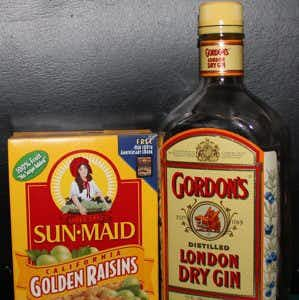
We have been writing about home remedies for over 40 years. We love simple, inexpensive approaches to common problems so long as they work. That is especially true now when people are home without easy access to medical care. But how do we know if they work, or if people just think they might? What we need are scientific studies to determine the effectiveness of some common treatments. This reader wants to know if there is any science to support the old wives’ tales.
Scientific Studies About Home Remedies:
Q. You frequently write about home remedies. Have any of them been subject to randomized control trials? If so, what have the results been? If not, why not? Is it because there’s no money to be made from the results or because there are no sound bases for them to be effective in the first place?
A. Home remedies are rarely subjected to randomized placebo-controlled trials because such studies are expensive to conduct. Without the prospect of patent protection, most drug companies are unwilling to invest millions of dollars in this kind of research.
TRP Channels:
On the other hand, there is more scientific evidence behind some home remedies than you might expect. For example, using pickle juice or yellow mustard to ease muscle cramps seems illogical. Nevertheless, we now have a scientific explanation. Such strongly flavored items activate transient receptor potential (TRP) channels on nerve cells to reverse muscle cramps. Dr. Bruce Bean explained this beautifully in Show 1054: The Scientific Explanation for a Weird Remedy (Archive).
Those TRP channels are behind some other home remedies, such as ginger to overcome nausea. Ginger, like capsaicin (the hot stuff in chile peppers), activates TRPV1, a heat-sensing channel. That’s why it tastes hot.
An Apple a Day:
The old adage that “An apple a day keeps the doctor away” got some unexpected support from scientific studies recently. Investigators reported that people eating two apples daily lowered their cholesterol modestly (American Journal of Clinical Nutrition, Dec. 16, 2019). They also increase the flexibility of their blood vessels. Moreover, there is a great deal of research on the use of a dietary portfolio to control cholesterol levels (JAMA, July 23, 2003).
Scientific Studies of Vicks VapoRub for Nail Fungus:
Our readers love Vicks VapoRub to treat ugly toenail fungus. There are very few scientific studies of this remedy. However, investigators at Michigan State University found that menthol, camphor and eucalyptus oil fight the pathogens responsible for nail fungus infections (Phytotherapy Research, April 2003). These essential oils work together with the “inactive” ingredients in Vicks and similar products: thymol, oil of turpentine, oil of nutmeg and oil of cedar leaf. Although we have not seen a randomized placebo-controlled trial of Vicks for nail fungus, Air Force investigators published a case series supporting its use (Journal of the American Board of Family Medicine, Jan-Feb. 2011).
Learn More:
You can learn all about these and the scientific studies that support other old wives’ wisdom in our eGuide to Favorite Home Remedies. Here are some of the topics you will read about:
The Raisin Remedy for Arthritis
Ashwagandha vs. Inflammation
Certo and Grape Juise for Sore Joints
Sliced Onion for Stings
Thyme Tea for Coughs
Muscle Cramp Miracle
War on Warts
If you learn about clinical trials on a remedy, please be sure to let us know about it!
Citations
- Koutsos A et al, "Two apples a day lower serum cholesterol and improve cardiometabolic biomarkers in mildly hypercholesterolemic adults: A randomized, controlled, crossover trial." American Journal of Clinical Nutrition, Dec. 16, 2019. https://doi.org/10.1093/ajcn/nqz282
- Jenkins DJ et al, "Effects of a dietary portfolio of cholesterol-lowering foods vs lovastatin on serum lipids and C-reactive protein." JAMA, July 23, 2003. DOI: 10.1001/jama.290.4.502
- Ramsewak RS et al, "In vitro antagonistic activity of monoterpenes and their mixtures against 'toe nail fungus' pathogens." Phytotherapy Research, April 2003. DOI: 10.1002/ptr.1164
- Derby R et al, "Novel treatment of onychomycosis using over-the-counter mentholated ointment: a clinical case series." Journal of the American Board of Family Medicine, Jan-Feb. 2011. DOI: 10.3122/jabfm.2011.01.100124

